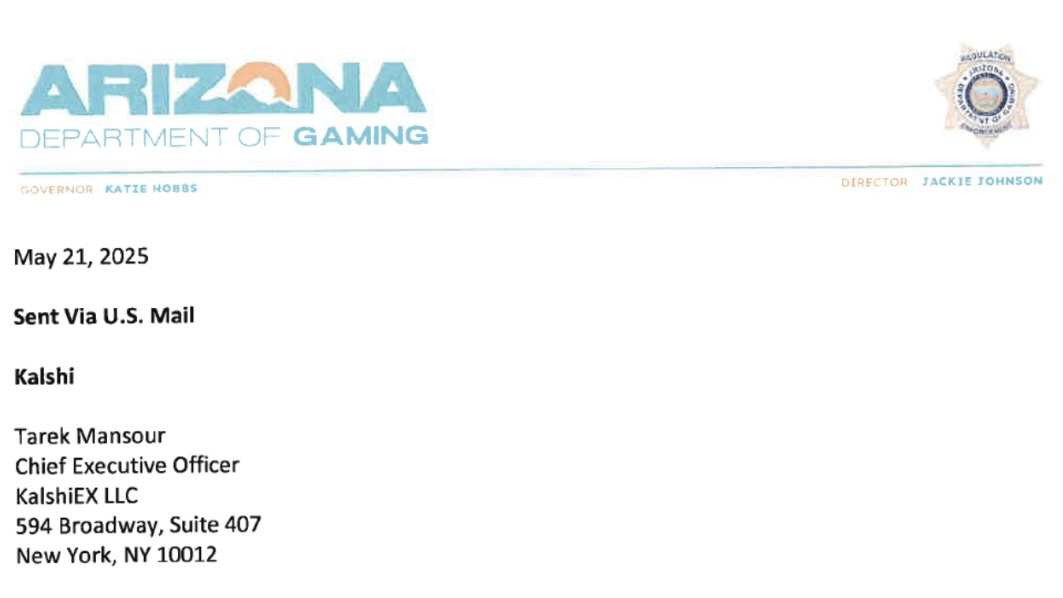Arizona Becomes the Seventh State to Ban Kalshi, Robinhood, and Crypto.com

In the United States, Arizona became the seventh state to ban the operations of prediction platforms Kalshi, Robinhood, and Crypto.com, following New Jersey, Illinois, Montana, Nevada, Ohio, and Maryland.
What Happened
The Arizona Department of Gaming (ADG) sent official cease and desist letters to three platforms: Kalshi, Robinhood, and Crypto.com.
Kalshi is accused of operating unregistered bookmaking through contracts on sporting events, which, according to the regulator, violates local law.
Allegations Against Kalshi
According to the letter sent to Kalshi CEO Tarek Mansour, the platform:
- offers betting without a license;
- does not conduct background checks on employees and management;
- does not restrict access for users under 21;
- fails to comply with integrity monitoring and problem gambling requirements.
The regulator emphasizes that Kalshi’s attempt to frame its operations as “innovation” regulated by the Commodity Futures Trading Commission (CFTC) has no legal standing.
Kalshi’s Response and Lawsuits
In response to similar accusations in other states, Kalshi has filed lawsuits in federal courts, claiming its operations are approved by the CFTC. So far, the company has secured temporary injunctions allowing it to continue operating.
However, Arizona authorities insist on the immediate cessation of operations in the state. The letter also mentions potential criminal and civil consequences, including:
- restitution to affected users;
- forfeiture of revenue from illegal activities;
- criminal prosecution of executives and staff.
Robinhood and Crypto.com Also Targeted
In similar letters, the regulator warned Robinhood and Crypto.com that conducting similar activities without a license is not permitted. Robinhood is also a partner of Kalshi in the event contracts sector.
Political Background and Future
The situation with prediction markets remains uncertain. The Biden administration has opposed such platforms, while the Trump administration has been more favorable toward them.
It is expected that Kalshi board member Brian Quintenz could be appointed chair of the CFTC, which might soften the regulator’s stance. However, his confirmation has been delayed until the end of summer amid several resignations at the commission.
According to former CFTC attorney David Aron, the CFTC is currently hampered: “While the CFTC can function with any number of commissioners, if only Acting Chair Pham and Commissioner Johnson remain, partisan disagreements will significantly stall progress.”
State Actions Compared
| State | Action |
|---|---|
| New Jersey | Cease and desist letter sent |
| Nevada | Kalshi operations banned |
| Illinois | Ban decision supported |
| Ohio | Violation of law recognized |
| Montana | Actions taken against Kalshi |
| Maryland | Regulatory prosecution |
| Arizona | Cease and desist letters sent to Kalshi, Robinhood, Crypto.com |
Conclusion
Arizona has joined the ranks of states actively fighting unlicensed prediction platforms.
Despite CFTC support, Kalshi and its partners are facing increased pressure from local authorities.
The future of such platforms will be determined in the courts and will also depend on political changes within the CFTC.
